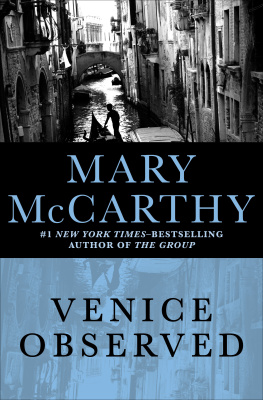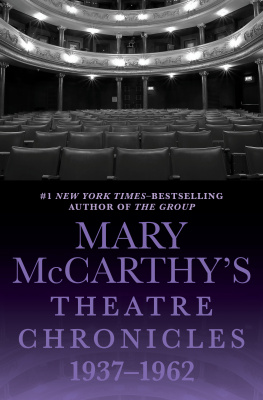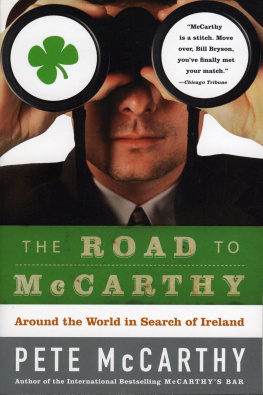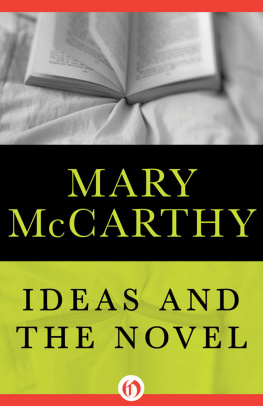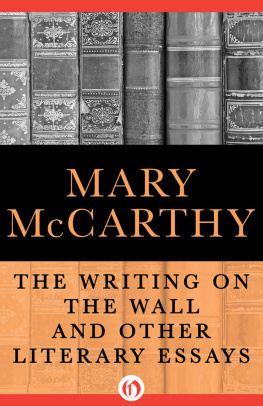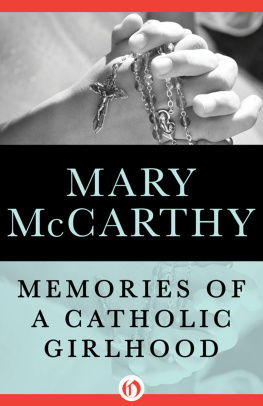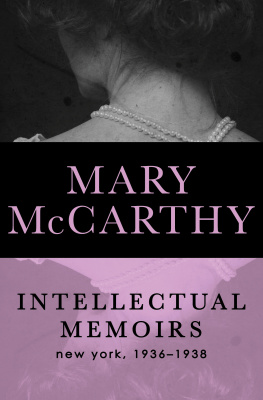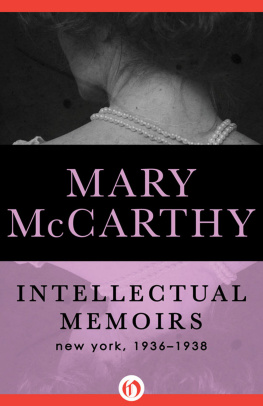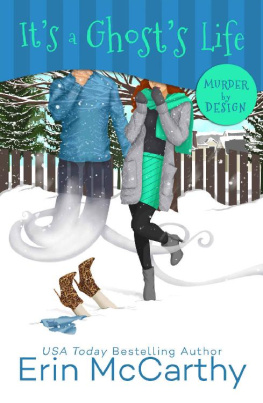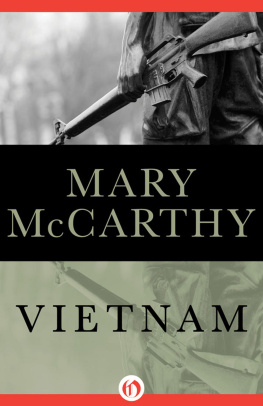

On the Contrary
Articles of Belief, 1946-1961
Mary McCarthy

I
POLITICS AND THE SOCIAL SCENE
A Letter to the Editor of Politics
November, 1946
Sir:
MAY I ADD SOMETHING to your comment on the Hiroshima New Yorker? The editors of that magazine imagined, and you yourself in your comment take for granted, that the Hersey piece was an indictment of atomic warfare. Its real effect, however, was quite the opposite. What it did was to minimize the atom bomb by treating it as though it belonged to the familiar order of catastrophesfires, floods, earthquakeswhich we have always had with us and which offer to the journalist, from Pliny down to Mr. Hersey, an unparalleled wealth of human-interest stories, examples of the marvelous, and true-life narratives of incredible escapes. The grandness of the disaster and the smallness of the victims are ideally suited to the methods of journalism, which exaggerates and foreshortens simultaneously. The interview with the survivors (Mrs. Margaret OReilly, of 1810 Oak Street, housewife, speaking to reporters, said: When I first smelled smoke, I threw an old coat on and woke the baby, etc.) is the classic technique for reporting such eventsit serves well enough to give some sense, slightly absurd but nonetheless correct, of the continuity of life. But with Hiroshima, where the continuity of life was, for the first time, put into question, and by man, the existence of any survivors is an irrelevancy, and the interview with the survivors is an insipid falsification of the truth of atomic warfare. To have done the atom bomb justice, Mr. Hersey would have had to interview the dead.
But of this Mr. Hersey is, both literally and temperamentally, incapable. He is The New Yorkers reporter-at-large, not Virgil or Dantehell is not his sphere. Yet it is precisely in this spherethat is, in the moral worldthat the atom bomb exploded. To treat it journalistically, in terms of measurable destruction, is, in a sense, to deny its existence, and this is what Mr. Hersey has accomplished for the New Yorker readers. Up to August 31 of this year, no one dared think of Hiroshimait appeared to us all as a kind of hole in human history. Mr. Hersey has filled that hole with busy little Japanese Methodists; he has made it familiar and safe, and so, in the final sense, boring. As for the origin of the trouble, the question of intention and guiltwhich is what made Hiroshima more horrifying, to say the least, than the Chicago Firethe bombers, the scientists, the government appear in this article to be as inadvertent as Mrs. OLearys cow.
There is no question that The New Yorkers editors did not deliberately plan the August 31 issue as an anniversary celebration of the atom bomb (though one wonders whether they were not competing just a little with it in this journalistic coup that allowed a single article to obliterate the contents of the magazine). The point is that The New Yorker cannot be against the atom bomb, no matter how hard it tries, just as it could not, even in this moral emergency, eliminate the cigarette and perfume advertising that accompanied Mr. Herseys text. Since The New Yorker has not, so far as we know, had a rupture with the government, the scientists, and the boys in the bomber, it can only assimilate the atom bomb to itself, to Westchester County, to smoked turkey, and the Hotel Carlyle. (Whenever I stay at the Carlyle, I feel like sending it a thank-you note, says a middle-aged lady in an advertisement.) It is all one world.
Mary McCarthy
America the Beautiful
The Humanist in the Bathtub
September, 1947
A VISITING EXISTENTIALIST WANTED recently to be taken to dinner at a really American place. This proposal, natural enough in a tourist, disclosed a situation thoroughly unnatural. Unless the visiting ladys object was suffering, there was no way of satisfying her demand. Sukiyaki joints, chop suey joints, Italian table dhte places, French provincial restaurants with the menu written on a slate, Irish chophouses, and Jewish delicatessens came abundantly to mind, but these were not what the lady wanted. Schraffts or the Automat would have answered, yet to take her there would have been to turn oneself into a tourist and to present America as a spectaclea New Yorker cartoon or a savage drawing in the New Masses. It was the beginning of an evening of humiliations. The visitor was lively and eager; her mind lay open and orderly, like a notebook ready for impressions. It was not long, however, before she shut it up with a snap. We had no recommendations to make to her. With movies, plays, current books, it was the same story as with the restaurants. Open City, Les Enfants du Paradis, Oscar Wilde, a reprint of Henry James were pt de maison to this lady who wanted the definitive flapjack. She did not believe us when we said that there were no good Hollywood movies, no good Broadway playsonly curios; she was merely confirmed in her impression that American intellectuals were negative.
Yet the irritating thing was that we did not feel negative. We admired and liked our country; we preferred it to that imaginary America, land of the peaux rouges of Caldwell and Steinbeck, dumb paradise of violence and the detective story, which had excited the sensibilities of our visitor and of the up-to-date French literary world. But to found our preference, to locate it materially in some admirable object or institution, such as Chartres, say, or French caf life, was for us, that night at any rate, an impossible undertaking. We heard ourselves saying that the real America was elsewhere, in the white frame houses and church spires of New England; yet we knew that we talked foolishlywe were not Granville Hicks and we looked ludicrous in his opinions. The Elevated, half a block away, interrupting us every time a train passed, gave us the lie on schedule, every eight minutes. But if the elm-shaded village green was a false or at least an insufficient address for the genius loci we honored, where then was it to be found? Surveyed from the vantage point of Europe, this large continent seemed suddenly deficient in objects of virtue. The Grand Canyon, Yellowstone Park, Jim Hills mansion in St. Paul, Jeffersons Monticello, the blast furnaces of Pittsburgh, Mount Rainier, the yellow observatory at Amherst, the little-theatre movement in Cleveland, Ohio, a Greek revival house glimpsed from a car window in a lost river-town in New Jerseythese things were too small for the size of the country. Each of them, when pointed to, diminished in interest with the ladys perspective of distance. There was no sight that in itself seemed to justify her crossing of the Atlantic.
If she was interested in conditions, that was a different matter. There are conditions everywhere; it takes no special genius to produce them. Yet would it be an act of hospitality to invite a visitor to a lynching? Unfortunately, nearly all the sights in America fall under the head of conditions. Hollywood, Reno, the sharecroppers homes in the South, the mining towns of Pennsylvania, Coney Island, the Chicago stockyards, Macys, the Dodgers, Harlem, even Congress, the forum of our liberties, are spectacles rather than sights, to use the term in the colloquial sense of Didnt he make a holy spectacle of himself? An Englishman of almost any political opinion can show a visitor through the Houses of Parliament with a sense of pride or at least of indulgence toward his national foibles and traditions. The American, if he has a spark of national feeling, will be humiliated by the very prospect of a foreigners visit to Congressthese, for the most part, illiterate hacks whose fancy vests are spotted with gravy, and whose speeches, hypocritical, unctuous, and slovenly, are spotted also with the gravy of political patronage, these persons are a reflection on the democratic process rather than of it; they expose it in its underwear. In European legislation, we are told, a great deal of shady business goes on in private, behind the scenes. In America, it is just the opposite, anything good, presumably, is accomplished
Next page

